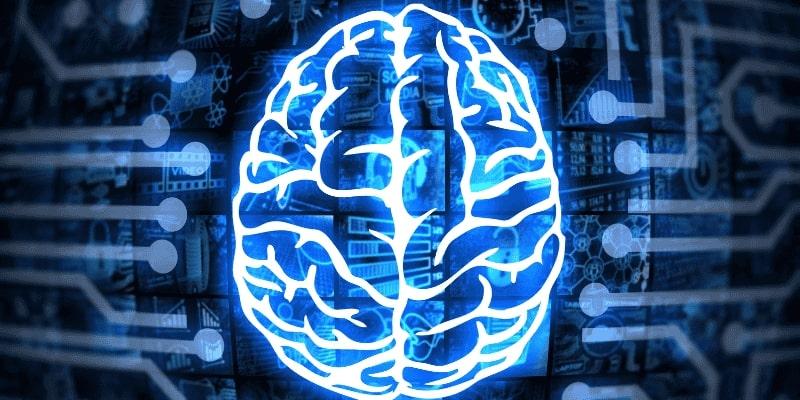By making treatments more specific and personalized, Artificial Intelligence (AI) is revolutionising how cancer treatment is done. This blog discusses the effectiveness of AI in detecting and increasing accuracy in treatment, personalizing care to an individual patient, and the ease of delivery. We are going to analyze practical implementations and possibilities of turning the world of oncology upside down.
Historically, treatment of cancer has been associated with many challenges right from early identification to provision of effective treatment and personalized care. Advanced diagnostic techniques are traditional and may not work well in terms of precision thus resulting into possibility of misdiagnosis or late diagnosis. Other than diagnostics, the fact that cancer is heterogeneous (unlike in cases like typhoid where the disease remains similar across patients) poses a challenge in administering effective as well as tolerable therapies.
Technology contributes to overcoming the challenges and developing oncology. Such innovations as AI, machine learning, and big data analytics allow healthcare providers to analyze the data on a patient quick and correctly, discovering valuable information. More precision in detecting abnormalities is with the help of AI-enhanced imaging, whereas predictive models select the treatment in regard to the genetic and molecular profile of the patients.
These advancements improve survival rates and patient care. By integrating technology into healthcare systems, the field is making significant progress in addressing the complexities of cancer treatment.

AI plays a pivotal role in analyzing medical imaging for early diagnosis by leveraging advanced algorithms to interpret scans with remarkable accuracy and speed. Through deep learning techniques, AI systems can identify patterns and subtle abnormalities that may be missed by the human eye.
For instance, AI-powered tools like Google’s DeepMind have demonstrated the ability to detect early signs of breast cancer in mammograms with improved accuracy compared to traditional methods. Similarly, other tools such as IDx-DR assist in diagnosing diabetic retinopathy by analyzing retinal images within minutes. These diagnostic systems not only enhance the precision of early detection but also accelerate the process, enabling timely intervention and better patient outcomes.
Artificial intelligence is revolutionizing the development of personalized treatments by analyzing vast amounts of patient data. By leveraging machine learning algorithms, AI can identify patterns in genetic information, medical history, and lifestyle factors, allowing healthcare providers to design highly individualized treatment plans. These tailored approaches ensure that therapies are not only more effective but also minimize potential side effects, aligning treatments with the unique needs of each patient.
Precision medicine, powered by advancements in AI, is revolutionizing the healthcare landscape by personalizing treatments according to individual needs. This innovative approach focuses on tailoring medical care to the genetic and environmental profiles of patients, promising improved outcomes. Below are some of the significant benefits of precision medicine in improving treatment:
Precision medicine ensures that patients receive treatments specifically suited to their unique genetic makeup and condition. This approach significantly increases the likelihood of success compared to traditional one-size-fits-all methods. By targeting the root cause with accuracy, it eliminates ineffective therapies, saving critical time and resources in the process.
Traditional treatments often come with generalized side effects that may affect patients differently. Precision medicine addresses this issue by using treatments that align closely with the patient’s unique genetic and biological profile, minimizing adverse reactions. This not only improves the patient’s quality of life but also fosters trust in personalized healthcare approaches.
By analyzing patient-specific data, precision medicine provides insights into how different individuals or groups respond to treatments. This accelerates the drug development process, as researchers can identify promising compounds and therapies more efficiently. It optimizes clinical trials and paves the way for faster breakthroughs in medicine, benefiting both patients and the medical community.
Artificial intelligence (AI) plays a crucial role in revolutionizing treatment monitoring by enabling real-time tracking of patient responses. Advanced AI algorithms analyze vast amounts of data from wearable devices, electronic health records, and diagnostic tools to provide continuous updates on a patient’s condition.
With AI-generated insights, healthcare providers can dynamically adjust therapies to suit each patient’s evolving needs. This ensures optimal treatment outcomes by minimizing risks, reducing adverse effects, and enhancing the overall effectiveness of interventions. By leveraging these advanced technologies, precision medicine continues to push the boundaries of personalized care.
AI-powered systems have demonstrated remarkable potential in forecasting the progression of diseases by analyzing vast datasets of patient information. This allows healthcare professionals to anticipate potential complications and intervene early, improving patient outcomes and planning proactive care strategies.
Predictive models driven by AI offer valuable insights into the likely efficacy of various treatment options for individual patients. By analyzing genetic information, clinical data, and previous treatment responses, these models help determine which therapies are most likely to succeed. This data-driven approach reduces trial-and-error in prescribing treatments, minimizes unnecessary side effects, and ensures patients receive the most effective, targeted care possible.

While the advancements in AI-driven personalized medicine are promising, they also present several challenges and critical ethical considerations. From data security to patient consent, understanding these concerns is vital to ensuring the responsible use of AI in healthcare.
The integration of AI in healthcare requires vast amounts of patient data to function effectively. However, safeguarding this data is a significant challenge, as breaches or unauthorized access could lead to misuse of sensitive personal information. Ensuring robust encryption, compliance with regulations like HIPAA, and transparent practices remains critical to protecting patient privacy.
AI models rely on the data they are trained on, which can sometimes include implicit societal or systemic biases. If unchecked, these biases could result in unequal treatment recommendations or worse outcomes for certain groups. Developing diverse, unbiased datasets and regularly auditing AI systems can help mitigate these risks and promote equitable care.
AI’s predictive capabilities should not overshadow the importance of patient input and informed consent. Patients must understand how their data is being used and have the right to decide whether to participate. Clear communication, ethical standards, and maintaining trust between healthcare providers and patients are integral to addressing this concern effectively.
AI is transforming cancer treatment by enabling earlier detection, personalized therapies, and real-time monitoring. With enhanced precision and predictive capabilities, it improves outcomes and patient care. While challenges remain, responsible integration of AI holds the key to revolutionizing oncology and advancing the future of cancer treatment worldwide.

Failures often occur without visible warning. Confidence can mask instability.

We’ve learned that speed is not judgment. Explore the technical and philosophical reasons why human discernment remains the irreplaceable final layer in any critical decision-making pipeline.

Understand AI vs Human Intelligence with clear examples, strengths, and how human reasoning still plays a central role

Writing proficiency is accelerated by personalized, instant feedback. This article details how advanced computational systems act as a tireless writing mentor.

Mastercard fights back fraud with artificial intelligence, using real-time AI fraud detection to secure global transactions

AI code hallucinations can lead to hidden security risks in development workflows and software deployments

Small language models are gaining ground as researchers prioritize performance, speed, and efficient AI models

How generative AI is transforming the music industry, offering groundbreaking tools and opportunities for artists, producers, and fans alike.

Exploring the rise of advanced robotics and intelligent automation, showcasing how dexterous machines are transforming industries and shaping the future.

What a smart home is, how it works, and how home automation simplifies daily living with connected technology

Bridge the gap between engineers and analysts using shared language, strong data contracts, and simple weekly routines.

Optimize your organization's success by effectively implementing AI with proper planning, data accuracy, and clear objectives.